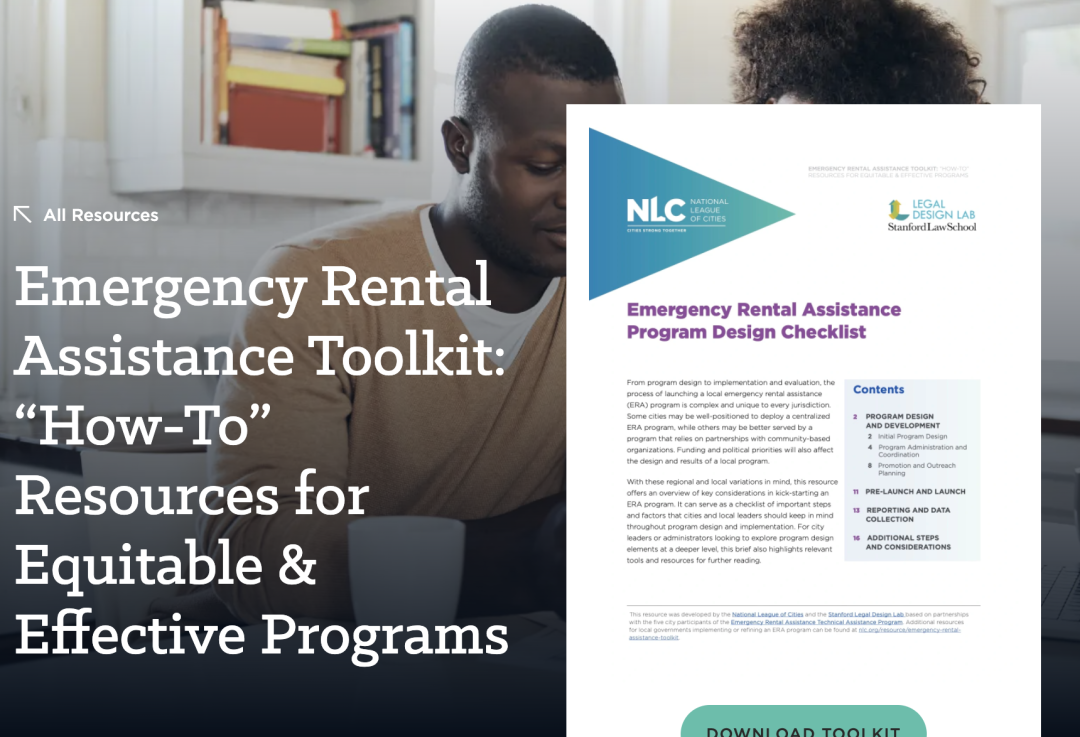
Emergency Rent Assistance How-To Toolkit
This toolkit provides a series of how-to guides to local policymakers, to make an effective and equitable Emergency Rental Assistance Program.

This toolkit provides a series of how-to guides to local policymakers, to make an effective and equitable Emergency Rental Assistance Program.
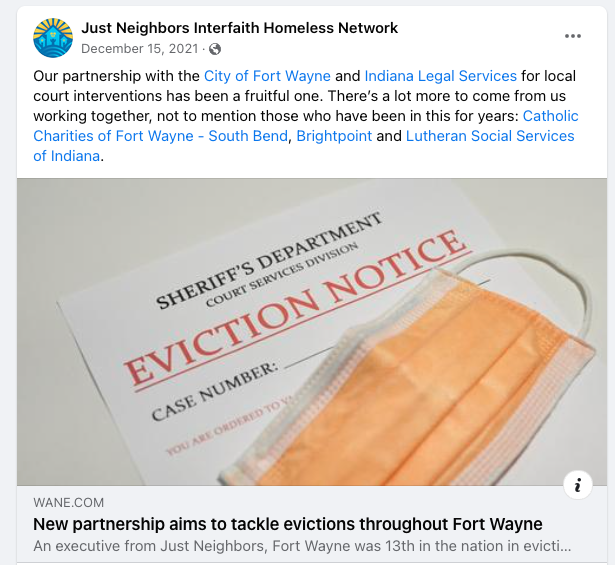
A unique partnership in the Indiana town of Fort Wayne has created an in-court eviction prevention service to reach more tenants and landlords before they go to trial, with services and guidance that can help them come to a resolution and get financial help without going to court.

Courts, legal aid groups, and diversion programs are using text messages to send reminders, referrals, and encouragement to tenants to participate in court and avoid eviction
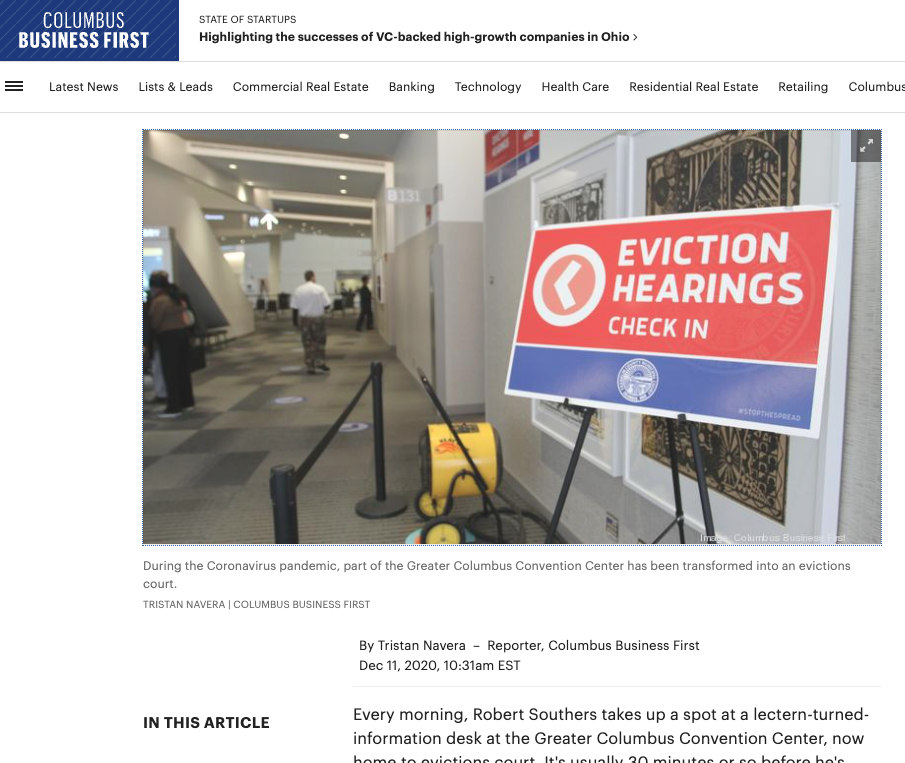
Social worker navigators are a new way to connect tenants and landlords with important assistance to resolve their problems when they visit court. They can also help court leaders make smarter referrals to get to better outcomes.
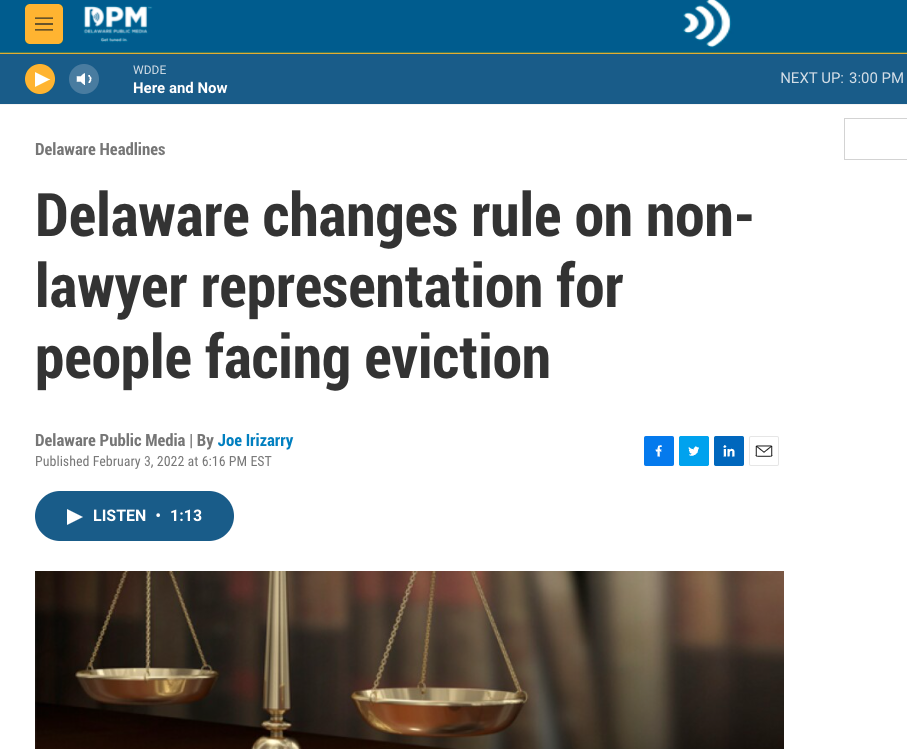
The Delaware Supreme Court established a new policy that allows non-lawyers — in this case, approved Qualified Tenant Advocates — to represent tenants in eviction court. This is…
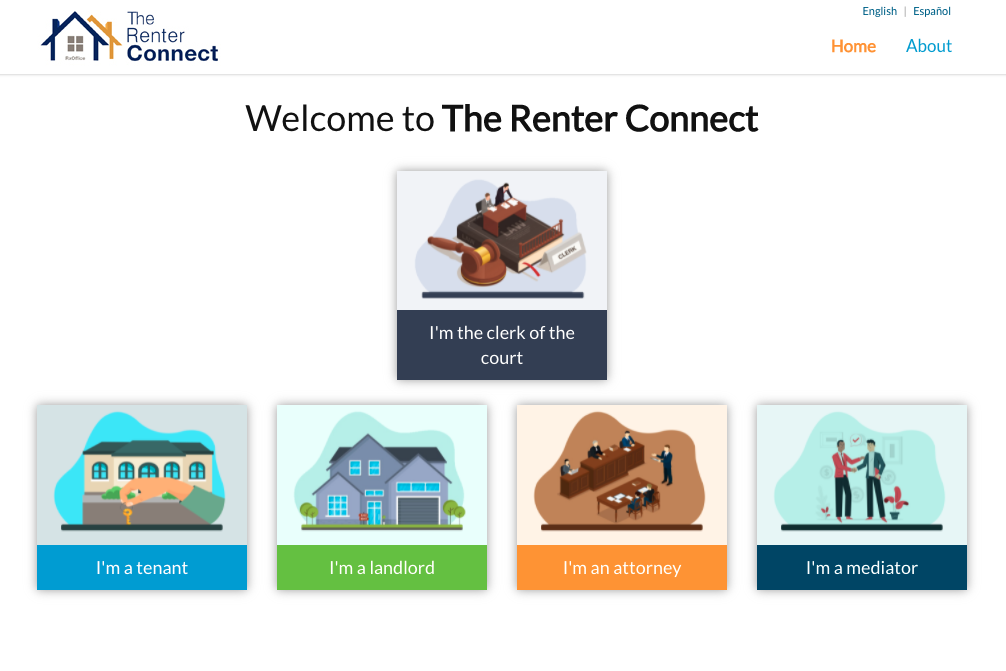
The Nevada State Bar has established an Eviction Mediation Program to get more free mediators available to landlords and tenants who are facing problems. The program provides extensive training, resources, and support to volunteers working to resolve people’s cases.
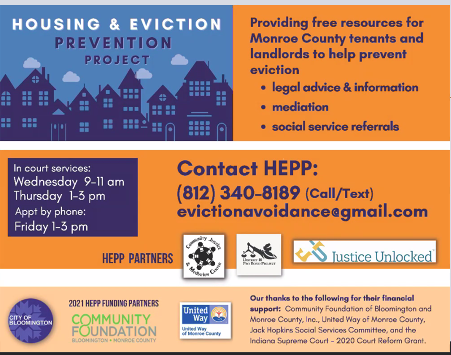
The Housing & Eviction Prevention Project (HEPP) in Indiana provides free legal, mediation, and social services to court. It includes integration into the court process, so once people are facing an eviction trial, they may be linked to services that can help them resolve their problem out of court.
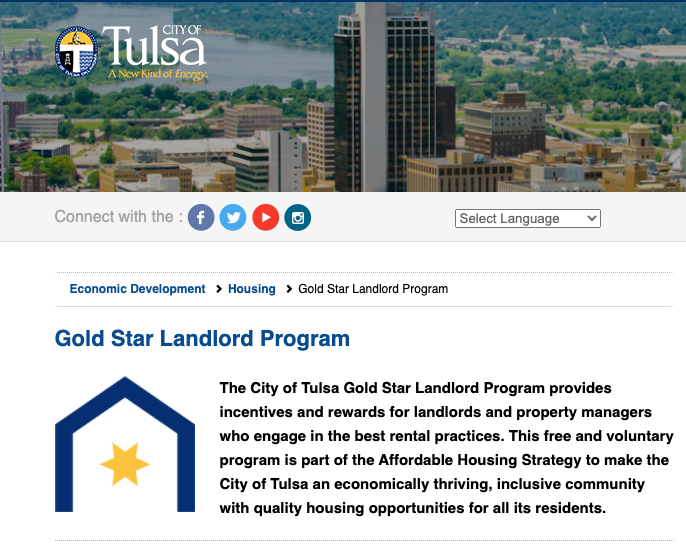
The city of Tulsa has begun a Gold Star Landlord program to incentivize landlords engage in best practices for housing and addressing the eviction crisis. It gives them publicity, approved tenants, and assistance from the city.

The program provides housing assistance and education to low-income community members. Services include: mediation, education and legal advice.
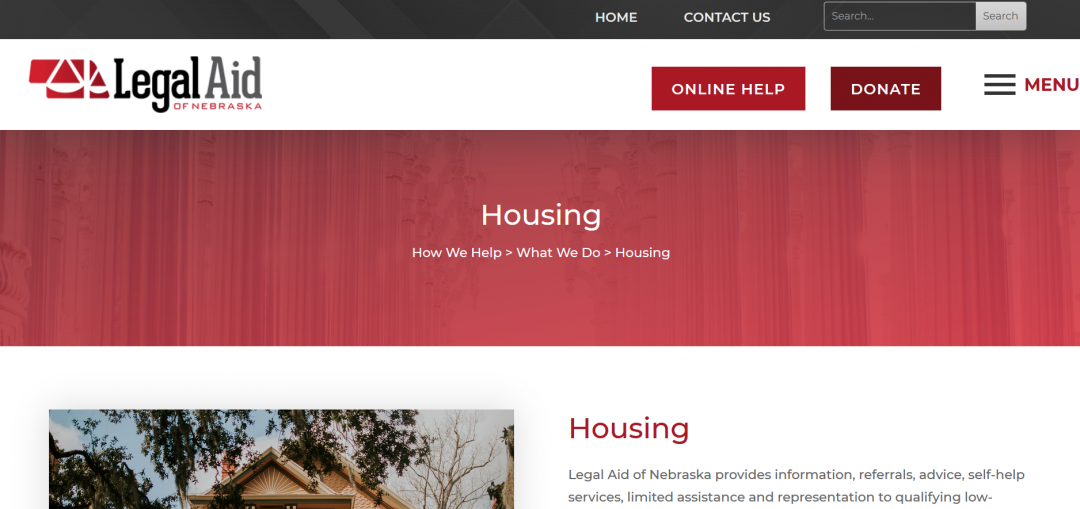
The program provides assistance to low-income individuals with housing problems. Assistance includes, information, referrals, advice, self-help services and limited assistance and representation to qualifying low-income individuals with legal problems that fit within their housing priority.